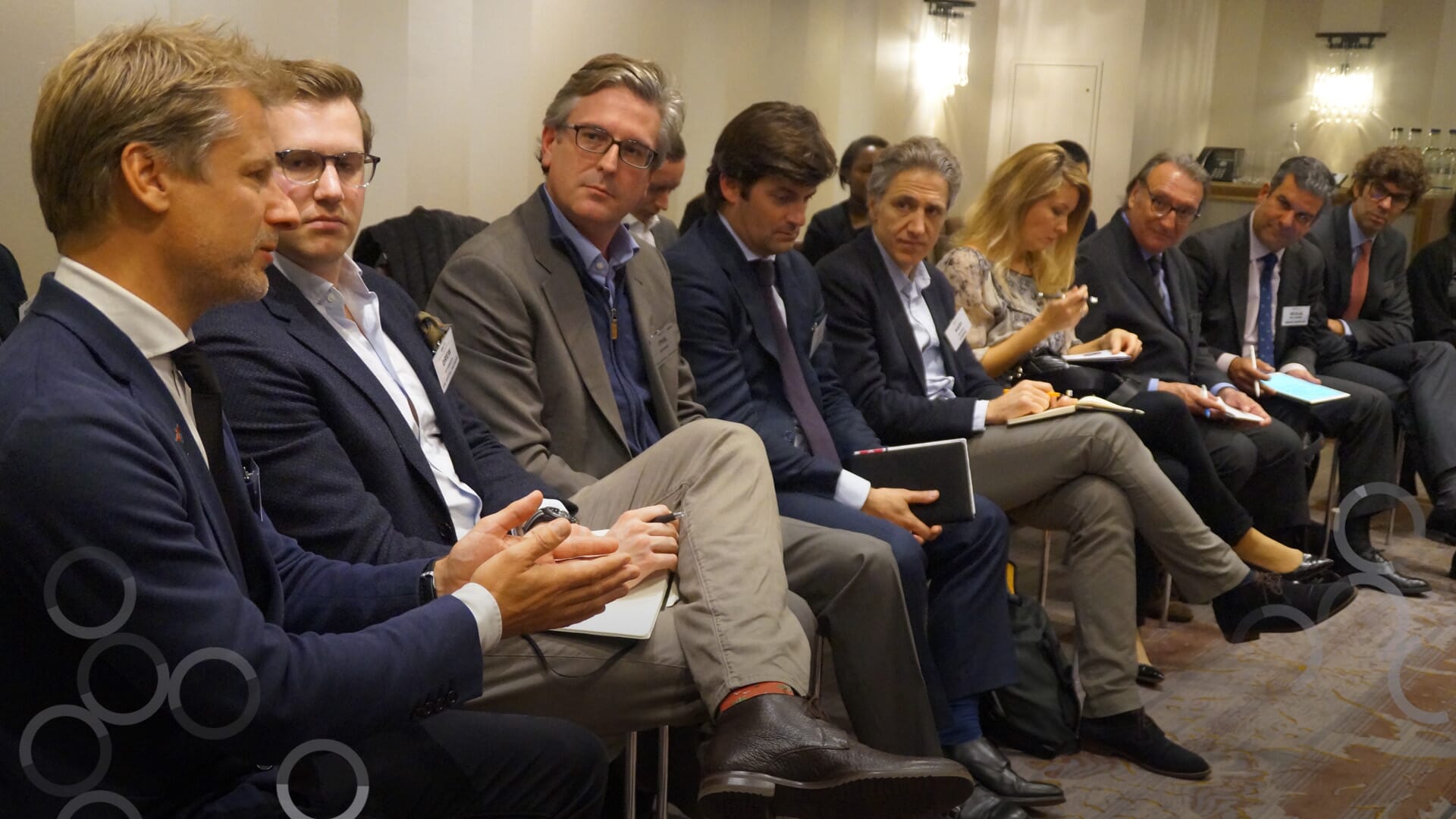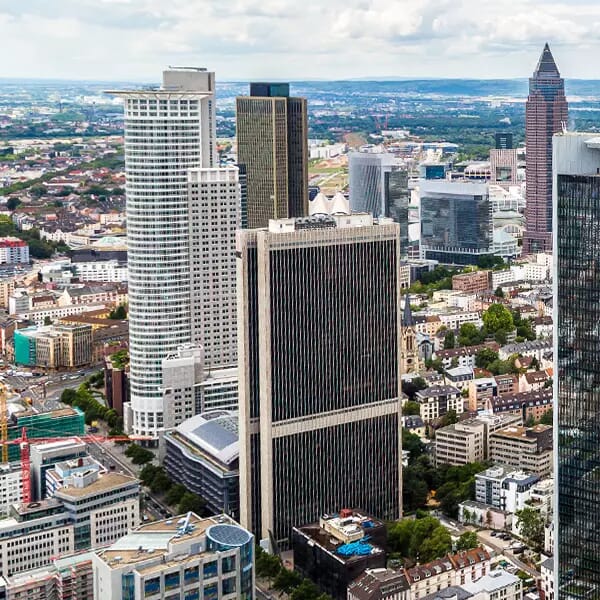 GRI
GRILifestyle & brand – The future rests with serviced assets
GRI Real Estate Club members discussed lifestyle and branding, and how the lines between asset classes are blurring.
December 11, 2018Real Estate
GRI Club Real Estate members met in London on 28 November for a lively discussion on lifestyle and the serviced revolution in real estate, moderated by Brian Betel, managing partner at ASG Iberia Advisors, and advisory board member for the GRI Club in Spain. Among the attendees were Hadi Moussa, head of Northern Countries at UK Airbnb, Keith Evans, senior vice president at Starwood Capital, and Jasper Muller, managing director of Development & Investment for Europe at CitizenM.
Drawing upon viewpoints from across different sectors and disciplines within real estate, and taking into account a convergence of pressures and changes in the industry, club members worked towards the conclusion that real estate cannot be just built and left at that. In the future, assets must be treated as ‘operational real estate’.
Airbnb continues to disrupt
Incredible to think that Airbnb - one of the market’s most disruptive forces - has only been going for ten years. But it continues to grow in new directions - as Moussa informed participants in the discussion - moving into new types of assets and assisting developers with the design of common spaces, amenities and services.
Space doesn’t matter so much anymore ...
A common feeling in the room from most innovative operators dealing with the millennial 'mobile’ generation was that space is not that important: it is the lifestyle experience that counts - the sense of community and the human touch. Technology - the infrastructure backbone that guests do not see - can be undervalued and needs to stay relevant.
… but time does
How long people stay in one place, from a day to over a year, and when exactly they stay, and how you can stretch the temporal boundaries of real estate assets to accommodate them, or blend different time periods together in one concept, were vital issues throughout the discussion.
Lifestyles differ around the world
The discussion was wide-ranging, including thoughts on co-working: how to make money from it, and the idea of including co-working space in hotels. Lifestyle expectations in US and Europe were compared. A focus on entertainment was paying off for one hotel brand, while the concept of ‘wellness’ was fundamentally important to another. The operational elements of affordable housing and co-living were also considered, and the barriers which exist in Europe to the growth of the build-to-rent sector, including regulatory frameworks.
Blending and experimenting with new products
It was clear, from the many examples discussed, that the real estate market is going through a period of experimentation: seeking to define new products and concepts, as different sectors expand and converge, from hotels to apartments, from students to business people, from singletons to big families and corporate groups, from working to living, from shorter to longer stays. Adaptability, reversibility and space maximisation matter - such as furniture and fittings that can move and change.
The customer decides if you are a brand, not you
Customers face a confused mass of hospitality offerings, even if they know what they want and at what price-point, as one participant pointed out: what they needed was better definition through brands. On top, a boutique hotel operator observed shrewdly that it was simply not possible to tell the consumer that you were a brand.
Can you afford not to take risks?
As was neatly summed up towards the end of the discussion, real estate is no longer something that can simply be built and left at that: the future is ‘operational real estate’. Now is the time to experiment with blended products, to try out new concepts and to lose no time in taking risks.
Drawing upon viewpoints from across different sectors and disciplines within real estate, and taking into account a convergence of pressures and changes in the industry, club members worked towards the conclusion that real estate cannot be just built and left at that. In the future, assets must be treated as ‘operational real estate’.
Airbnb continues to disrupt
Incredible to think that Airbnb - one of the market’s most disruptive forces - has only been going for ten years. But it continues to grow in new directions - as Moussa informed participants in the discussion - moving into new types of assets and assisting developers with the design of common spaces, amenities and services.
Space doesn’t matter so much anymore ...
A common feeling in the room from most innovative operators dealing with the millennial 'mobile’ generation was that space is not that important: it is the lifestyle experience that counts - the sense of community and the human touch. Technology - the infrastructure backbone that guests do not see - can be undervalued and needs to stay relevant.
… but time does
How long people stay in one place, from a day to over a year, and when exactly they stay, and how you can stretch the temporal boundaries of real estate assets to accommodate them, or blend different time periods together in one concept, were vital issues throughout the discussion.
Lifestyles differ around the world
The discussion was wide-ranging, including thoughts on co-working: how to make money from it, and the idea of including co-working space in hotels. Lifestyle expectations in US and Europe were compared. A focus on entertainment was paying off for one hotel brand, while the concept of ‘wellness’ was fundamentally important to another. The operational elements of affordable housing and co-living were also considered, and the barriers which exist in Europe to the growth of the build-to-rent sector, including regulatory frameworks.
Blending and experimenting with new products
It was clear, from the many examples discussed, that the real estate market is going through a period of experimentation: seeking to define new products and concepts, as different sectors expand and converge, from hotels to apartments, from students to business people, from singletons to big families and corporate groups, from working to living, from shorter to longer stays. Adaptability, reversibility and space maximisation matter - such as furniture and fittings that can move and change.
The customer decides if you are a brand, not you
Customers face a confused mass of hospitality offerings, even if they know what they want and at what price-point, as one participant pointed out: what they needed was better definition through brands. On top, a boutique hotel operator observed shrewdly that it was simply not possible to tell the consumer that you were a brand.
Can you afford not to take risks?
As was neatly summed up towards the end of the discussion, real estate is no longer something that can simply be built and left at that: the future is ‘operational real estate’. Now is the time to experiment with blended products, to try out new concepts and to lose no time in taking risks.



